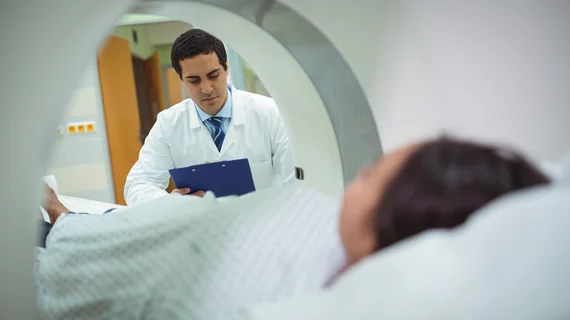Deep learning-based MRI reconstruction software produces considerable cost savings
Procuring deep learning-based MRI reconstruction software can produce considerable cost savings for an imaging provider, according to new research published Wednesday.
Oulu University Hospital in Finland recently purchased such software hoping to improve throughput in its Department of Diagnostic Radiology. The change has allowed the hospital, which serves about 416,000 inhabitants in its geography, to tackle more exams without buying additional machines.
“Adopting [deep learning reconstruction] for our upcoming five-scanner fleet would allow us to sustain our current MRI service levels with one fewer scanner, thereby enabling [over $436,000 (USD) in] cost savings annually,” Dr. Mikael A.K. Brix, a medical physicist at the university, and colleagues’ wrote March 20 in the European Journal of Radiology [1].
As of early 2024, Oulu University Hospital had six MRI machines in its fleet. But by 2025, its radiology department will shift to only five scanners due to a partial reorganization of hospital functions within new buildings. Brix and colleagues believe the adoption of deep learning will allow them to continue offering the same service levels with fewer resources.
For the study, researchers analyzed registry data from the hospital’s radiology information system archives, including CPT codes, average exam times and the cost of each exam in 2022. Their goal was to find the most common reasons for using MRI, where optimizing acquisition times would produce the largest impact on throughput.
Oulu University Hospital conducted a three-month trial of the Deep Resolve Boost DLR method from Siemens Healthineers on a 3T scanner. They then used data from this pilot to forecast how deep learning would improve efficiency. In 2022, the hospital handled 21,568 MRIs. Seven exam types were selected for optimization based on their frequency and the ability to accelerate them with AI.
Depending on time spent positioning the patient, simulations demonstrated an overall increase in scanner capacity of 20% to 32%. Operating five MRI scanners with Deep Resolve Boost—while allowing an average of 13 minutes for patient positioning—allowed the hospital to exceed the throughput of six scanners without deep learning. Brix and co-authors estimated the cost of adopting DL technology across its fleet was only 11% compared to procuring another scanner and 20% versus the weekend utilization costs for six MRI devices.
“The work demonstrates a coordinated method to address the monetary impact and productivity gains of incorporating DLR into the diagnostic MRI routine,” the authors wrote. “Furthermore, it offers the reader a program for estimating the viability of the DLR at their facility. However…country- and facility-specific considerations should be addressed prior to piloting the same or similar products at other sites.”
Read much more in EJR at the link below. Researchers also published a similar study about deep learning and MRI throughput in Radiology: Artificial Intelligence on Wednesday.

